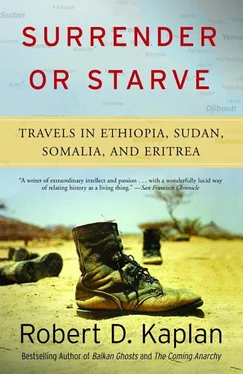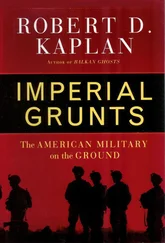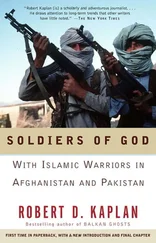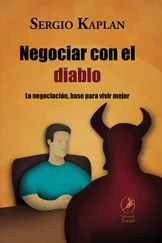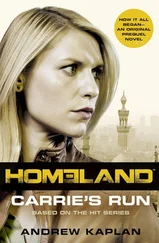In April 1987, on the second anniversary of the coup that toppled Nimeiri, the peasants of Sudan, the largest country in Africa, had little hope. Western-style parliamentary democracy had produced only another government of corrupt landowners. This government was worse than Nimeiri’s, because at least Nimeiri, who did nothing for his people in his final years in office, did not hinder the United States and other Western nations from doing something. Under Swareddahab’s and Sadiq’s leadership, Western relief workers were encountering one bureaucratic and security hurdle after another in their attempts to get internal travel permits, to import supplies into the country, and to do other tasks vital to helping people whom the Sudanese government ignored.
On the other hand, the storm cloud raised by Gaddafi could very well vanish with the eternally shifting desert winds. In the first weeks of spring 1987, French-assisted Chadian government forces virtually ejected Gaddafi from the north of their country, and inside Libya itself, the mercurial colonel was facing what appeared to be an inexorable, albeit gradual, buildup of internal opposition. However, even if we should all wake up one morning to hear that Gaddafi has been overthrown, his bold moves to take advantage of a vacuum of power in Sudan in the mid 1980s should cure those in the West of the delusion that humanitarian means are sufficient to achieve humanitarian ends in Africa.
USAID officials have pointed out to me that the equation I make is an unfair one. Humanitarian assistance, they say, by its very definition is designed to have a humanitarian impact, not a political one. The real-life facts on the ground prove, however, that such logic is a cop-out because, first, it lets Third World leaders morally off the hook. If leaders like those in Khartoum and Addis Ababa placed as much priority on the well-being of their peasants as the United States does, there would be no question about granting a political payoff commensurate with the amount of U.S. famine aid.
Second, I believe the U.S. experience in Sudan, Ethiopia, and elsewhere forces the nation to question the very meaning of the term “humanitarian.” Is it humanitarian to allow people like the Libyans or the Soviets to establish a foothold in a given country when experience demonstrates that the individual inhabitants, especially peasants, in their zone of influence tend to have far fewer freedoms than do those in the U.S. zone of influence (alarming exceptions such as Chile in the 1970s notwithstanding)? Experience likewise demonstrates—protestations of humanitarianism to the contrary—that relief aid to a politically powerless sector of a Third World population cannot compete in terms of influence with military and other kinds of assistance to the politically powerful. The argument that the West has an advantage in the Third World because it presents a more viable model for economic development is nonsense because the Eastern bloc provides a more viable model for political control, which is what ruling elites are interested in.
At the same time, calling certain kinds of humanitarian assistance “strategic” gives rise to another confusion. “Strategic” connotes a sinister intent because the word alludes to military, even nuclear, conflict. “Strategic” also implies a certain willingness to accept in the abstract that places like Ethiopia or Sudan, to say nothing of places like Iran, will be required for the defense of the Western world, an abstraction that many in the United States do not accept. It needs to be emphasized that what is “strategic” is also “humanitarian” and is often the most effective form of long-range humanitarian assistance. Conservatives trying to sell the Reagan Doctrine are a good example of this confusion in labeling. They sometimes have mistakenly marketed their product as a “strategic” response to Soviet expansionism. Although each individual case has to be considered on its merits, as a general rule, the Reagan Doctrine also can be called a “moral” response, which would be more attractive to the U.S. public at large. Otherwise, by declining to take direct action against aggression by the Soviets, the Libyans, and others, the United States in effect is consigning helpless people around the world to an awful fate.
No group of people was more ignorant of these hard facts of life than were elements of the foreign policy team of President Jimmy Carter in 1977 and 1978. No one mentioned during the famine emergency that the wholesale loss of human life—not to mention the disregard of human rights—had important antecedents in the Carter human rights policy, in which abstract moral precepts became a barrier to the kind of action necessary to save a population from being swallowed whole by the shadow of totalitarianism. Much of what has transpired in the past decade in the Horn of Africa can be traced to that folly of good intentions.
The Horn of Africa is a powerful allegory of U.S. foreign policy weakness precisely because what occurred there in the late 1970s was so entirely typical of how the United States, the Soviet Union, and Third World elites behave and interact. The United States was reactive and internally divided; policymakers argued about what forceful measures to take without actually taking any and expected the USSR to act as the United States would in the same position. The Soviets did not oblige. As is their wont, they employed proxy soldiers—in this instance, Cubans and South Yemenis—as tools in a crude, brazen, and not-altogether-well-thought-out policy. Despite what U.S. conservatives like to believe, there was no detailed Soviet game plan. The Soviets improvised as they went along. But because U.S. policy was based on and constricted by moral precepts that Soviet and African rulers only preached, the Soviets were able to operate in a vacuum of U.S. inaction that made it seem as if their moves were part of a bold, brilliantly conceived strategy. The behavior of the emergent Ethiopian strongman, Mengistu Haile Mariam, also was not unique. He was neither a religious fundamentalist nor at the time a Marxist ideologue. He was simply the number one thug on the lookout for an alliance that would best serve to consolidate his control. He found it.
The Horn also was a pure, essentially in vitro case study of liberal foreign policy notions at work in the real world. It was the first turf battle between the United States and the Soviet Union after Jimmy Carter was inaugurated as president, and as a consequence, Carter’s team was fresh and relatively undistracted by other crises. By the time that the shah’s regime in Iran began to unravel in mid 1978, and certainly by the time of the Soviet invasion of Afghanistan in 1979, Jimmy Carter, hardened by his experience in the White House, was less of a liberal than he was when Ethiopia and Somalia grabbed his attention in early 1977. In Iran, Carter, whatever else his faults, eventually tried force to free U.S. hostages, something for which the conservative editorial writers of The Wall Street Journal praised him. In Afghanistan, he took the unpopular, highly symbolic decision of boycotting the 1980 Moscow Olympics, despite little support from much of the Western world. Ideologically, the president’s behavior in these later crises was harder to categorize. But in the Horn, the liberals and Africanists had their chance. In comparing what they predicted in the late 1970s with what had transpired by the late 1980s, they have nothing to hide behind.
In his memoir Hard Choices, Carter’s secretary of state, Cyrus Vance, recalled that “we in the State Department saw the Horn as a textbook case of Soviet exploitation of a local conflict. In the long run, however, we believed the Ethiopians would oust the Soviets from their country as had happened in Egypt and Sudan.” Carter’s U.N. ambassador, Andrew Young, agreed with Vance, arguing that the Soviet presence in Ethiopia was not only temporary, but self-defeating because the Soviets would get bogged down in internal African problems. Young, who because of his passionate public interest became extremely influential regarding U.S. relations with African states, advised Carter not to get involved as the Soviets had. After all, Young was quoted as saying, U.S. policy toward Africa was now “more wholesome and healthy than it has been in a long time.” Basically, Young and Vance wanted Africans to decide matters for themselves. If the Soviets were foolish enough to continue their military adventure, area experts in the U.S. State Department predicted that the Horn might become the USSR’s Vietnam. According to a Baltimore Sun editorial (November 15, 1977), the United States “may yet come out with enhanced influence for non-involvement” in the region. One of the only dissenting voices was that of Carter’s national security adviser, Zbigniew Brzezinski, who advised force as the only effective measure to counter the Soviet gambit. Brzezinski brought up various military-related options and recommended linkage between events in the Horn and progress on nuclear arms talks. Regarding the Soviets, Brzezinski wanted to be tough, while Young and Vance wanted to be reasonable. Reasonableness won out at every turn. Brzezinski’s tragedy, as the Ethiopia-Somalia crisis was the first to reveal, was that of being a hawk in an administration dominated by doves.
Читать дальше
